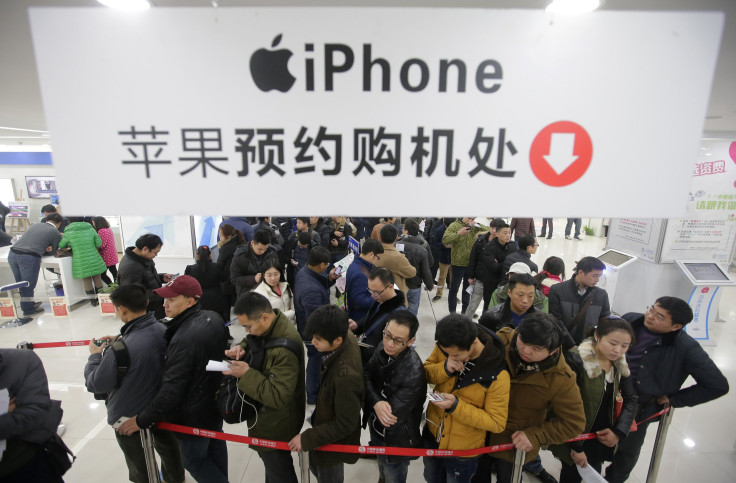One Place Where iPhone 6 Frenzy Hasn't Arrived? China, But Apple's Position There Remains Secure

As Apple Tuesday unveiled the iPhone 6, the latest edition of its iconic product, enthusiasts around the world eagerly watched the launch event held in Cupertino, California. But one major country may be less enthusiastic than others: The South China Morning Post reports lagging preorder phone sales have lent the impression iPhone fever is down in the world's second-biggest economy.
“You won’t believe [the cold reception for the iPhone 6] if you compare it to the fever of their previous release,” an online store merchant told the Morning Post.
For a country whose passion for iPhones once reached extreme levels -- in 2012, a 17-year-old sold a kidney for the money to buy the device -- a dip in enthusiasm is only the latest sign of concern for Apple Inc. (NASDAQ:AAPL) prospects in China. Apple’s market share in the country has receded due to the emergence of Xiaomi, a domestic firm whose slim, inexpensive models now comprise 14 percent of the country’s smartphone market. Apple had half that in the second quarter of 2014.
Apple has had political headaches, too. As a result of President Xi Jinping’s anti-corruption campaign, China’s wealthy and powerful have shunned ostentatious displays, and many are now fearful displaying a luxury item -- such as an iPhone -- may land them in trouble. Meanwhile, in July, China Central Television, the country’s state-run television network, accused Apple of using location tracking devices embedded in iPhones to spy on its users.
So are Apple’s China operations in trouble? Not likely. The company’s revenues in greater China, a geographic designation that includes Hong Kong and Taiwan, rose 28 percent in the year to June to $5.9 billion. And after signing a deal with China Mobile, the world’s largest mobile network with 1.24 billion subscribers, Apple has even begun to address its phone’s largest liability, its high price tag: Since January, China Mobile customers have been able to buy phones subsidized by the mobile carrier.
Apple is optimistic about its growth potential in China: CEO Tim Cook announced earlier this year the company plans to increase the number of Apple stores in China from 10 to more than 30.
But even Apple’s commercial success in China does not reveal the full extent of the company’s importance to the Chinese economy. In a research note, Bank of America calculated iPhones will add 1 percent to the country’s exports in the third quarter of this year. An estimate says 100 million iPhones will be manufactured in China this year, of which 17 million will be sold there and the rest exported.
So whatever happens Tuesday, one thing remains certain: Apple isn’t going anywhere in China anytime soon -- even if the country’s teenagers hold onto their kidneys this time.
© Copyright IBTimes 2024. All rights reserved.





















